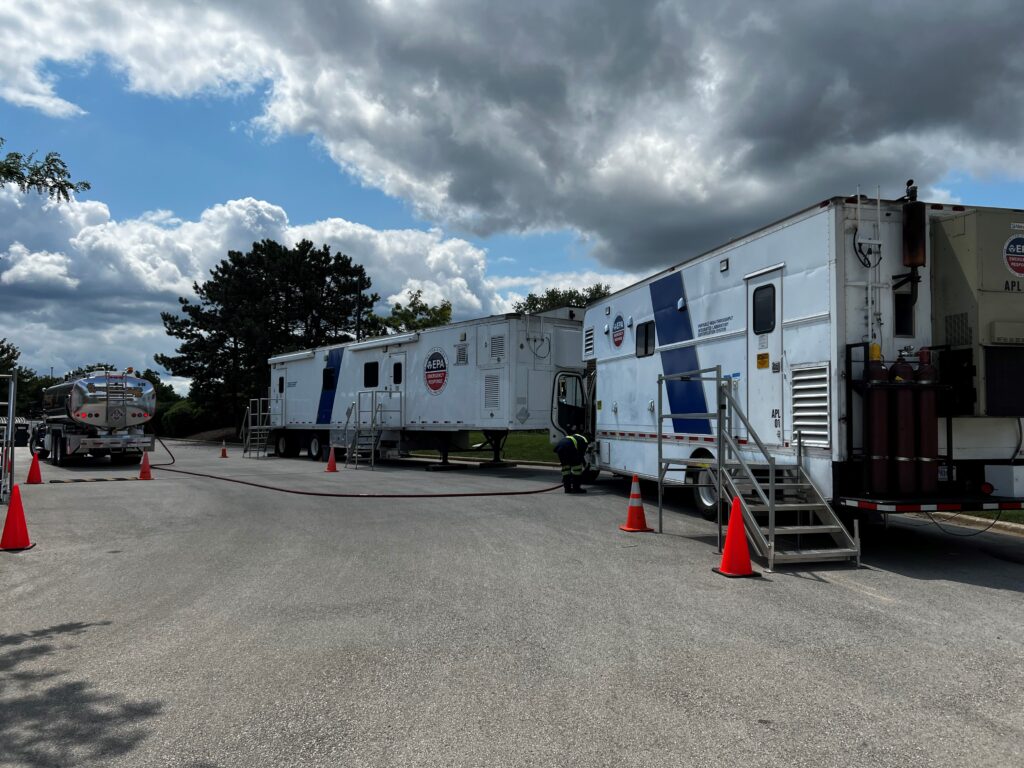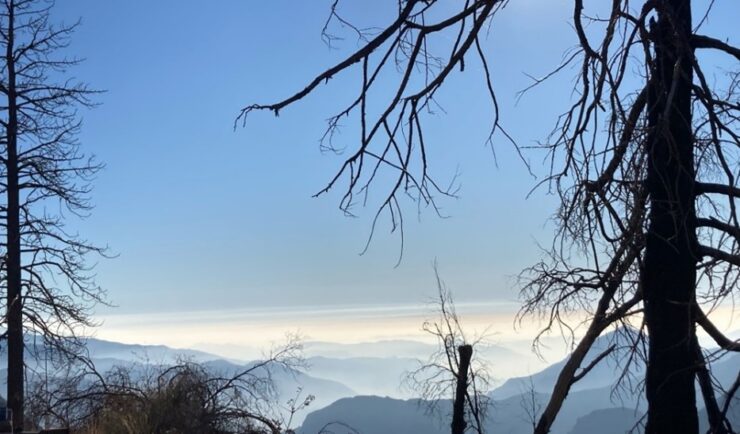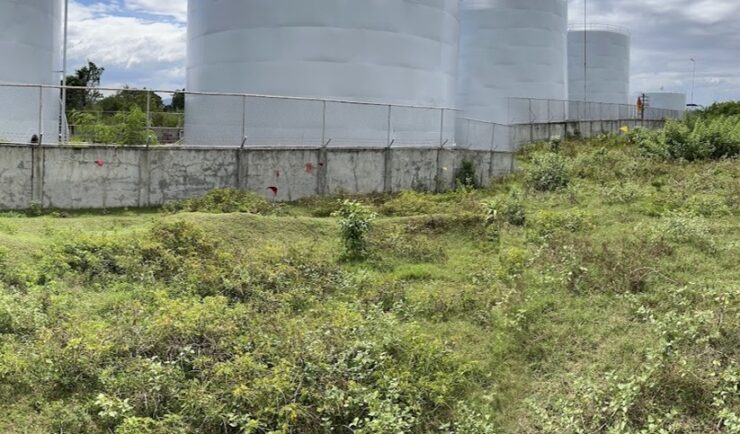- CSS News, Success Stories
- Emergency Preparedness & Response
Emergency Response Support for the Republican National Convention

CSS employee owners on contract with the U.S. Environmental Protection Agency’s Portable High-throughput Integrated Laboratory Identification System — a mobile analytical unit known as PHILIS — provided emergency response support for the 2024 Republican National Convention. PHILIS mobile laboratory units are designed to provide onsite analysis of environmental conditions, including air and soil samples, contaminated with chemicals. While the convention was held in Milwaukee, Wisconsin, the team was stationed on stand-by in a nearby location in Illinois to provide emergency response for the event of around 50,000 individuals.
The PHILIS team was prepared to support analysis of
- Volatile organic compounds for liquid, solid and air matrices by gas chromatography-mass spectrometry (GCMS)Semi-volatile organic compounds analysis for liquid and solid by GCMS
- Opioids for liquid, solid and wipe matrices by GCMS-Large Volume Injections (LVI)
- Chemical agent for liquids, solid and wipe matrices by GCMS-LVI
- Various forms of organophosphate nerve agent and venomous agent X for liquid, solid and wipe matrices by ultra performance liquid chromatography mass spectrometry (UPLCMSMS)
- Opioids for liquid, solid and wipe matrices by UPLCMSMS
Throughout the deployment, the team received many visitors, several of them from Hazardous Waste Operations and Emergency Response (HAZWOPER) training and exercise and some on scene coordinators from Region 5. The team analyzed a handful of ‘mock’ air samples at the RNC, which could be characterized as an informal exercise.


See More CSS Insights
New Data and Reports on the U.S. Marine Economy
Each year CSS economists on contract with NOAA’s Office for Coastal Management work with other federal agencies to process the most recent economic and labor data, and extract the portions related to marine-dependent sectors.

Monitoring Air Quality in California’s San Joaquin Valley
CSS employee owners supported the deployment and operation of the U.S. Environmental Protection Agency (EPA) air quality monitoring trailer (WEAVE COM – Western Enhanced Air quality VEhicle for COmmunity Monitoring) in California’s San Joaquin Valley in during late fall and early winter of 2024. Elevated particulate matter (PM2.5) is frequently found throughout the valley during…

Diesel Leak Remediation
Our employee owners have been supporting a remediation project in the Philippines. Diesel fuel leaked from a storage tank and seeped into the groundwater and soil. Emergency measures were taken but clean-up was delayed due to COVID restrictions. After some of the more strict COVID restrictions were lifted, CSS scientists joined the environmental due diligence…
